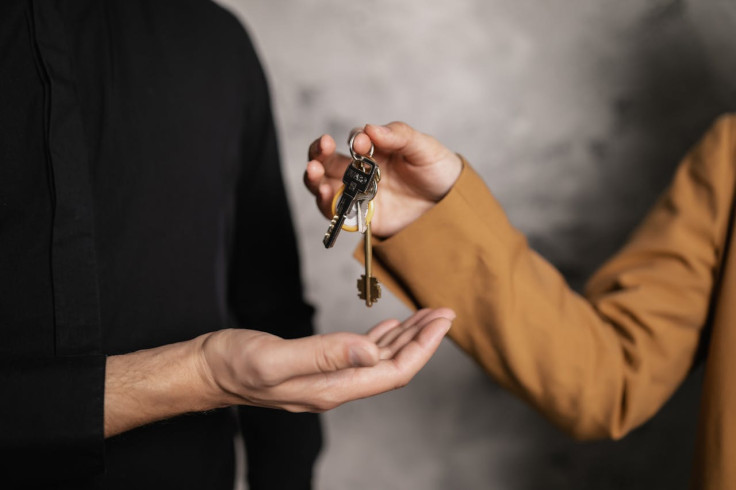
Responding to criticism aimed at his eight-year-old daughter, Ruby McLellan, the father of Australia's youngest property investor, suggests much of the criticism stems from envy, as Ruby demonstrated a willingness to make sacrifices that some lack.
The story of Ruby and her siblings purchasing a $671,000 (£527359.03) house in Clyde, Victoria, with their pocket money instead of spending it on treats, sparked controversy on social media platforms like X (formerly Twitter) and Instagram.
With a combined $6,000 (£4715.58) saved from their allowances, Ruby and her teenage siblings Angus (14) and Lucy (13) contributed to the down payment for their four-bedroom house on the outskirts of Melbourne two years ago.
Can kids compete in the housing market?
The property's value has already soared to an estimated $960,000 (£754492.80), reflecting the country's booming real estate market. While some considered the property purchase a smart investment for Ruby's future, online critics accused Ruby's parents of exploiting their children and engaging in what they described as potentially illegal tax schemes.
Some went as far as speculating it was all a tax dodge, possibly illegal and considered it a poor parenting decision. Undeterred by the online criticism, Ruby's father, Cam McLellan, the head of OpenCorp property group, told Daily Mail Australia his children wouldn't be exposed to the online negativity.
"It's easy for someone who doesn't have property or hasn't made sacrifices, to be angry about it and easy to target a young kid who has a leg-up," Mr McLellan said. Cam McLellan advised critics to be more productive, find extra work, reduce unnecessary expenses and save for their own future homes.
"Young adults' lifestyles are very flamboyant these days. I worked three jobs, I didn't go out, I sold my car," he said. According to Cam McLellan, regular cafe visits and shopping sprees have sapped people's money.
In addition to this, he believes frequent car upgrades contribute to financial strain. He noted that keeping a car for a longer period, like ten years in his case, is more economical. Cam further noted that it is important for young people to understand the value of sacrifice and delayed gratification.
In 2017, Australian property developer Tim Gurner sparked controversy with his suggestion that millennials cut back on avocado toast purchases to save for a house. The high cost of housing makes it understandable why some, like Gurner, have emphasised saving habits.
Head start or unearned advantage?
He said there's no magic formula for financial security, but this investment gave his kids a head start. "They have a leg up, but so can anyone in Australia," he said. The legality of the children's purchase is undisputed, as their ownership is documented on the property title.
The kids will be entitled to their share of any profit from a potential sale, along with any associated capital gains tax obligations upon reaching adulthood. While he admitted some tenants might find paying rent to children unusual, Cam McLellan emphasised that the purchase was a practical decision rather than a move to make a social statement.
"I want to save them from having to save for deposits down the track,' he said. 'I want to help them be smart property investors. When I was starting out I was earning $40,000 (£31437.20) and (a house) deposit was $7,000 (£5501.51). Now it's much harder to get a deposit if you're earning $60,000 (£47155.80) and the deposits are $120,000 (£94311.60)," he said.
Cam McLellan believes the property scenario will be worse in ten years' time, further noting that his kids will not be able to save that deposit. To address this concern, Cam and his wife Felicity opted to provide their children with a head start now rather than a $200,000 (£157186.00) deposit in the future.
He acknowledged the difficulties faced by many struggling to enter the housing market. Cam believes the rising prices are a result of various factors, such as large-scale migration and lack of available housing, both for purchase and rent. This leads to a continuous cycle of price inflation.
In an interview with Daily Mail's FEMAIL section, uby expressed her excitement about being a landlord but added she hadn't shared this news with her school friends yet.







